13 Things to Know Before Visiting Barcelona, Spain
Before you set off on your Spanish getaway, there are a few tips to consider to make your experience all the more memorable. Here are 13 Things to Know Before Visiting Barcelona, Spain.
Embarking on an escapade to any new destination is riveting in its own right. Travelling wields the wondrous soul into a wave of eagerness and anticipation, inducing swells of expectations for what’s yet to come.
Bustling Barcelona charms the likes of both seasoned and first-time travellers, discerning it as a destination that’s replete with untrammelled possibilities. Woven with a rich history, astonishing architecture and a gourmet food scene, the list goes on and on. From Gaudi’s modernist masterpieces to the fuming football fanatics and additional afternoon siestas, this city marks the difference.
Here’s what we cover in this guide:
Where to find the best beaches
Catalonia vs. Spain
Las Ramblas
Catalan Cuisine
Sundays in Spain
Pickpockets & petty crime
Walking
Horario partido (Split timetables)
Tourist traps
How to see popular attractions
Respecting locals
The booze laws
Flamenco
FAQs
Barcelona’s Best Beaches are Outside of the City
If you’re visiting Barcelona during the summer period, there’s no doubt you’ll be craving a quick dip in the Mediterranean Sea.
Although the Barceloneta beachfront boasts beach bars aplenty, international backpacker vibes, and pumping tunes, it’s certainly not the best the city offers. To be transparent, sometimes, there’s not even enough space to lay down a towel.
The nicest beaches near Barcelona are Lloret de Mar, Sitges, Sant Pol de Mar, Montgat, and Garraf. All are easily accessible via public transport, with either trains or buses being your best options.
There are turquoise waters, lush vegetation and rocky cliffs all to be explored, and these spots are a stellar option compared to the inner city’s beaches.
Want to make a day trip out of it? Check out my detailed guide to the Best Beaches in Catalonia.
Catalonia vs Spain
Catalonia is considered a part of Spain. However, as an autonomous region composed of Barcelona, Girona, Tarragona and Lleida, it boasts a significantly different cultural background from Spain's.
Local Catalans are proud of their heritage, history and language, and lobbying for autonomy is an ongoing battle. This is a tricky subject to discuss due to the political situation. You should practice caution when saying ‘‘Catalonia is Spain’’, as it can be seen as a sign of disrespect, irritating the more passionate residents. This is one of the most essential things locals want you to know before you visit Barcelona.
Boasting Catalan culture and tradition, Barcelona flaunts its very own official language, Catalan. Many locals describe the Catalan language as a combination of French, Portuguese, Spanish and Italian; you’ll see it displayed everywhere you venture. It’s pretty easy to get by with English. However, basic Spanish (Castellano) is widely appreciated.
Barcelona Travel Tip: Catalan will score some serious points with the locals. A few phrases can go a long way! Three staples are bon dia (good morning), si us plau (please), and gràcies (thank you).
Your Trip Shouldn’t Revolve Around La Rambla
Despite the persistent points made across glorified guidebooks, La Rambla is not a quintessential Barcelona experience. And while it is easy on the eyes, La Rambla is essentially Barcelona’s biggest tourist trap.
From over-priced stores to substandard restaurants, this is basically a breeding ground for theft and pickpocketing.
If you do elect to head down to the Rambla, check out the landscape’s unique interplay between modern and mythical-like monuments. Soak up the bustling atmosphere, and keep an eye out for some colourful characters.
I have a friend named Marian, a talented street artist and a seasoned regular on the Rambla. He draws remarkably realistic pieces (for a commission), but there’s one catch. He draws with his feet.
His artwork will blow you away, and his life story is awe-worthy. He’s a true testament to human potential, and if you so happen to spot him seated on the Rambla, I urge you to strike up a conversation.
Indulge in Catalan Cuisine
First-timers, don’t be deceived by Las Ramblas; this food-centric city offers much more than just your typical Spanish paella. Barcelona’s gastronomy scene is threaded with the Mediterranean palate, and the dishes are predominant in olive oil, fresh vegetables, fish and meat.
Straddling the Mediterranean coastline, Barcelona poses the perfect opportunity to dive into some delectable Catalan cuisine. With a wealth of seafood options, you should definitely order a paella or fideuà. As you’d expect, this place is teeming with tapas, so try out classic dishes like the patatas bravas, pimientos de padron, bombas, and pa amb tomaquet. Sweet freaks, you can turn to a traditional dessert called Crema Catalana (similar to a Crème Brulée).
Barcelona Travel Tip: Top it off with a bottle of Catalonia’s famous sparkling wine, cava. Because you’re in ‘Cava country’, it would be rude not to…
If you’re interested in a Full Food Guide to Barcelona, check out the best places to eat here. I’d recommend this private food-tasting tour, which covers over ten tasty tapas places, fusing sweet, savoury and drinks. Plus, you’ll see all the city’s highlights in between.
Stock up Before Sunday Strikes
Before you embark on your upcoming adventure, this is one of the most important things to remember. Even though tourism runs ravage throughout this Spanish metropolis, the expanse of places tends to close down on Sundays. In alignment with the country’s strong Catholic influence, around 90% of all restaurants, bars, supermarkets, malls and shops close in Barcelona on a Sunday.
Prepare ahead of time by ensuring you’ve got all the necessities like food and water the day before (especially if you’re going out to party on Saturday night).
The small handful of places that are open on a Sunday is generally, as you guessed it, tourist traps. Expect to fork out the big bucks and battle big-ass crowds too. Sundays in BCN are great for smashing cervezas (beers) at the beach or demolishing a Mediterranean-infused picnic at Bunkers del Carmel. If you find yourself stuck and strapped for options, I recommend downloading the app Glovo (similar to Uber Eats) app.
Keep Your Eyes Peeled for Pickpockets
Don’t get me wrong; I’ve loved living in this city for the past five years. But if there’s one downside to the dazzle and delight of Barcelona, it’s the thieves.
These professionals don’t just come in pairs but in packs too. Unfortunately, Barcelona is pinned as the pickpocket capital of the world.
Considering Spain’s cataclysmal unemployment rate, people tend to take to the streets. And the worst part? The police can’t really do anything.
That time my apartment got broken into? Nothing. That time they stole my laptop? Nothing. Don’t come to Barcelona with high expectations of recovering your stolen goods. The best advice I can give you is to get travel insurance.
Here are the best tips to avoid pickpockets in Barcelona:
Be extra cautious in Las Ramblas, in the metro and train stations, on the beaches and when waiting in long lines.
Don’t leave your phone, camera, purse, or anything valuable on the table when eating at a restaurant.
Don’t leave your phone in your back pocket.
Don’t carry large amounts of cash on you.
Get Your Walking Boots on
Like any major European city, the best way to get an authentic feel of local life is by foot. Taking a taxi can be tempting, especially during the scorching hot summer, but trust me when I say these streets were made for walking.
From getting lost in the labyrinth of laneways in El Gotico, to the winding paths of El Born, to catching a glimpse of picture-perfect perspectives on the exquisite architecture in L’Eixample, there’s more than meets the eye. Walking through BCN invites you to stumble across local treasures and hidden gems in the Old Town and surrounding neighbourhoods. This is a tip that will make your time here even more memorable.
Walking’s not your thing, you say? No worries, mate. Hire an electric scooter, bicycle or segway. This city is chockfull of alternatives.
Brace Yourself for Tricky Timetables
If you’re a big-time midday power-napper like myself, this city is indefinitely tailored to your needs.
It’s no joke that the Spanish siesta is taken seriously… Prepare to prioritise your scheduling and sightseeing because Barcelona boasts an horario partido (split timetable). This means most restaurants, bars, and other shops will close from 2 pm until 4 pm.
Aside from considering the midday siesta, this seaside city’s lunch and dinner eating hours are also out of the ordinary. El almuerzo (lunch) is generally from 1 pm to 3 pm, and la cena (dinner) ranges between 9 pm and 11:30 pm.
A handful of eateries and stores will be open if you are in a central touristic area, like El Gotico or Passeig de Gracia. Just don’t expect to indulge in the most authentic of experiences.
Venture Beyond the Tourist Traps
There’s simply no disputing that the divine architectural gems found fringing the Sagrada Familia, Gothic Quarter, Las Ramblas, and Parc Guell are well worth checking out.
But this is a thing that tourists should never do in Barcelona: spend all of their time at the swarming sites.
The main catch of BCN is that many marvellous monuments are threaded throughout the city and its outskirts too.
Step outside the tourist-targeted hot spots and soak up the atmosphere in the lush greenery around Montjuïc or the hipster-inspired community in Gràcia. If you want to taste how the locals live, pop out to Poble Nou, El Clot, Poble Sec or Sarrià.
Barcelona Travel Tip: If you visit the popular attractions in Barcelona, the ideal time to visit is either on a weekday. If you can’t make it there during the low season, expect nothing less than long queues. After all, millions flock here every year, and for bloody good reason.
A Plan of Attack re: Popular Attractions
Remember that tickets sell out fast if you’re travelling to Barcelona during peak season, so booking online’s best. Not only will you save yourself the hassle of last-minute, frantic ticket hunting, but you can sometimes skip the line.
With entry fees hovering around the €5 to €25 mark, these costs can stack up surprisingly quickly if you don’t plan ahead… Fortunately, there is a multitude of sightseeing passes and discount passes to help save yourself some cashola without having to miss out on anything.
The ample array of Barcelona Sightseeing Passes encompass discounted prices on the scope of tours and activities, entertainment and nightlife, shopping, restaurants, and transport. With the manifold of sightseeing passes out there, it can be overtly overwhelming when it comes down to making a decision.
Whether you’re a self-proclaimed culture vulture, a Gaudí-fanatic, or an avid academic, look no further because I’ve got you covered. Check out my comprehensive guide comparing the best of Barcelona’s Sightseeing Passes.
Hitting up the Town? Lower Your Voice at Night
Due to the close proximity of Barcelona’s narrow streets, even a normal conversation can be a serious nuisance to the neighbours. If you’re heading into the heart of the city for a night out, please be respectful of the locals.
This is one of the things you should know before visiting Barcelona because the locals aren’t afraid to take action in the form of retaliation. No joke, they will throw a bucket of water from their balconies. So, don't speak too loudly if you don’t want to get soaked. The funniest part: this is not uncommon!
Specific areas to be extra cautionary: El Born, El Gotico and El Raval. Buena suerte.
Buy Booze Before 10 pm
Believe it or not, if you want to score a bottle of alcohol in the evening, it will have to be before 10 pm. After that point, local vendors cannot legally sell you anything.
There are, however, ambitious entrepreneurs that are famous amongst locals in Barcelona. These are generally guys walking around with plastic bags selling beers and other beverages on the streets. If somebody mentions ‘‘sexy beers’’, they’re referencing the seasoned street vendors selling ‘‘cerveza-beer’’.
One thing to know before travelling to Barcelona: if you get caught drinking on the street, you’ll cop a hefty fine.
The Flamenco Forecast: Unforeseen
Yes, Flamenco plays an integral role in Spain’s history, however, don’t expect to see much of it in Barcelona. The passionate illustration painted through song and dance traces its roots back to the province of Andalusia. Flamenco dominates southern cultural expression, especially in places like Granada and Seville.
That being said, there are, however, some notable tablao (flamenco theatres) like Los Tarantos and Cordobes. This is one of the many things to know before you visit Barcelona, especially if you’re travelling here to immerse yourself in its revelling cultural scene…
FAQS
What are 3 interesting facts about Barcelona?
Barcelona was Spain’s capital back in 1937 to 1939. Modern-day Barcelona was built on an underground city. Barcelona has two official languages – Catalan and Castilian Spanish.
What do you want to do first in Barcelona?
Book the Sagrada Familia early in the morning, head to Park Güell or the beach in the afternoon and then spend the evening eating tapas in El Born or El Gotico.
How do you greet someone in Catalan?
Bon dia/Hola = Hello.
How many days in Barcelona is enough?
Four days is enough time to see most major attractions like Casa Batllo, Casa Mila, Sagrada Familia and Park Guell. You may be able to squeeze in a day trip to Girona, Sitges or Tarragona too.
Once a dominant city of the renowned Roman Empire, Barcelona has a rich history to satisfy voracious culture vultures, history freaks and ambitious art lovers alike. This Spanish, metropolitan hub has so much up stuffed up its’ sleeve, that it’ll fulfil just about everyone, and because there truly is so much on offer, it can become a bit overwhelming knowing where to set off.
These are the 13 most important things to know before visiting Barcelona, and if you take them into consideration, your Spanish getaway will be nothing short of a blast.
Do you have any travel hacks for Barcelona?

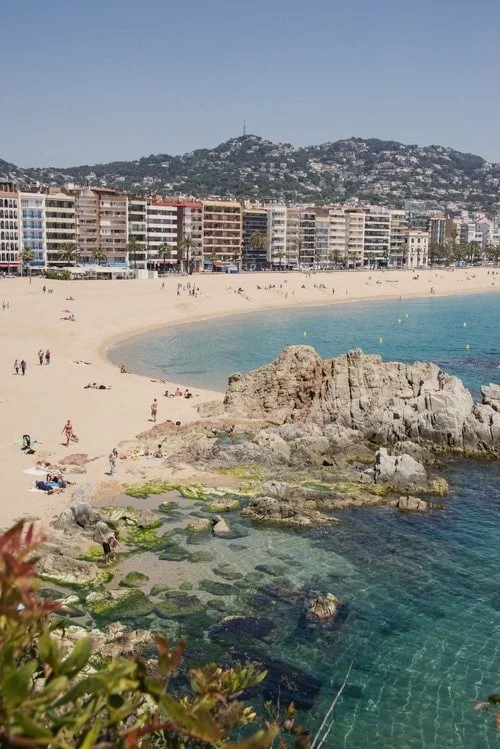
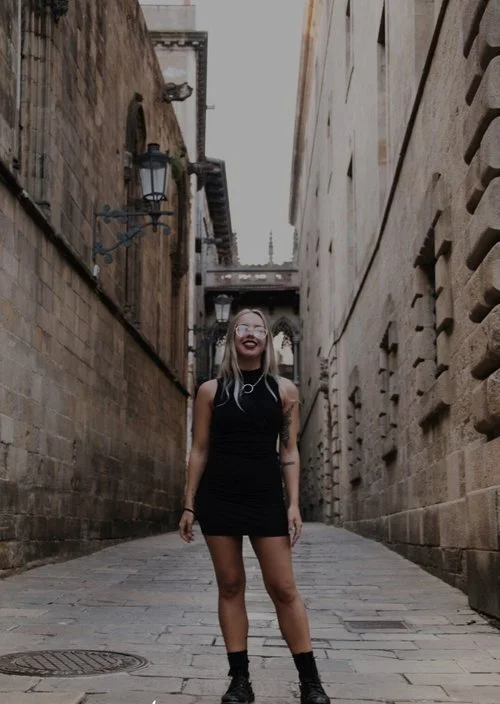
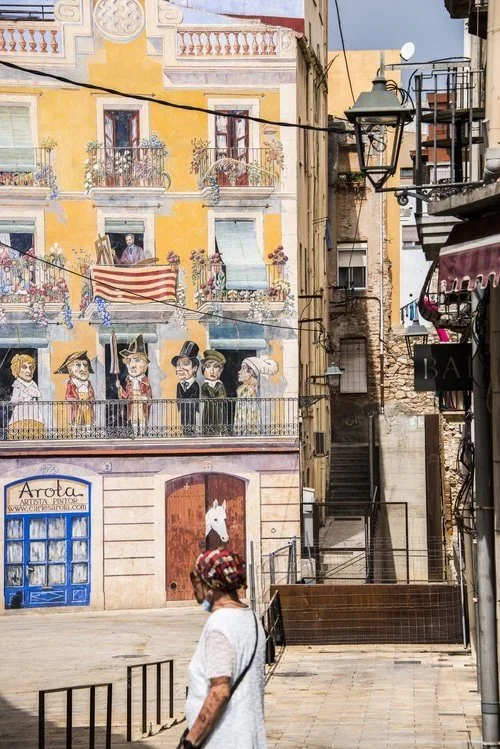
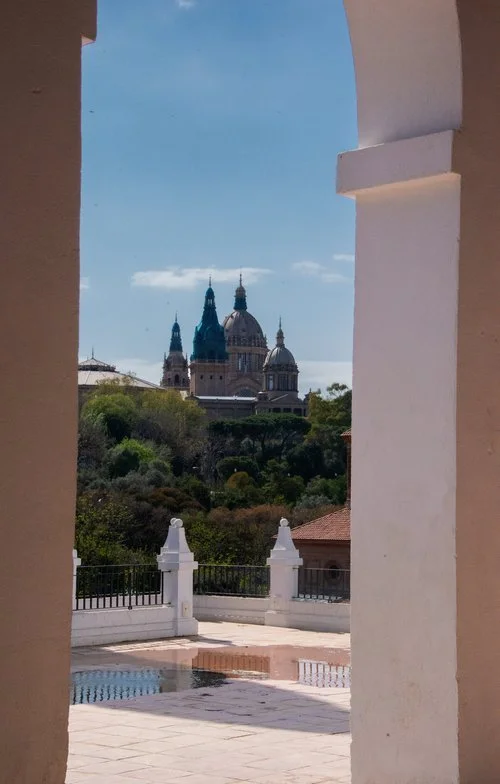
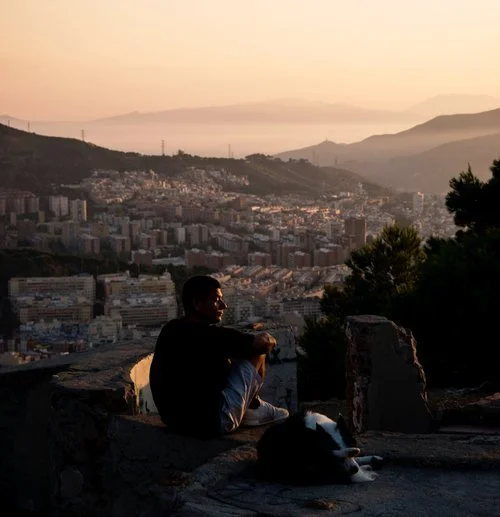
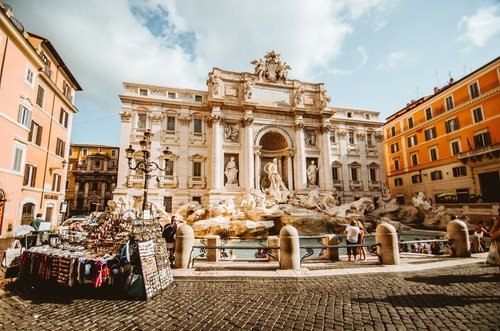

Culture and cuisine combine to make Belgium’s capital one of Europe’s most popular destinations. Whether you want to taste waffles or meander around museums, there are many things to do in Brussels.